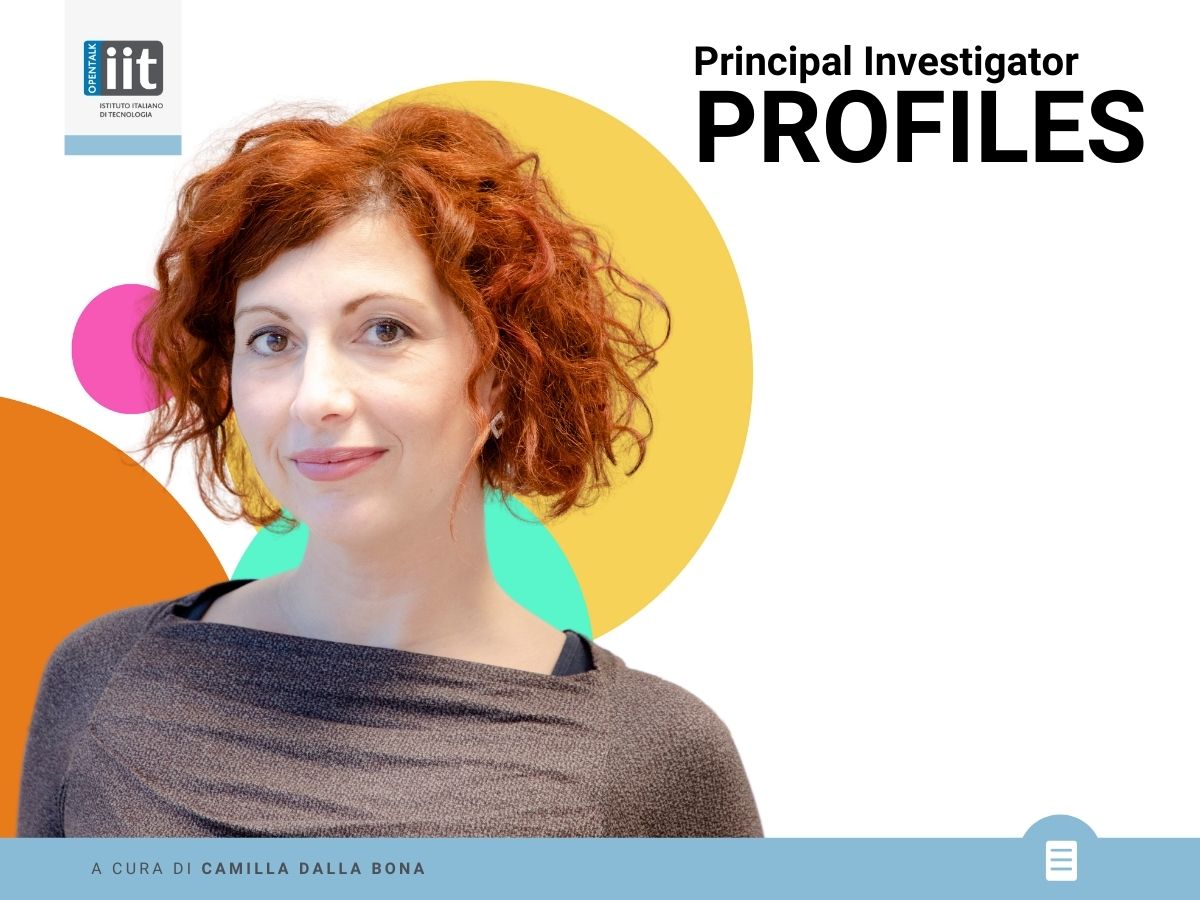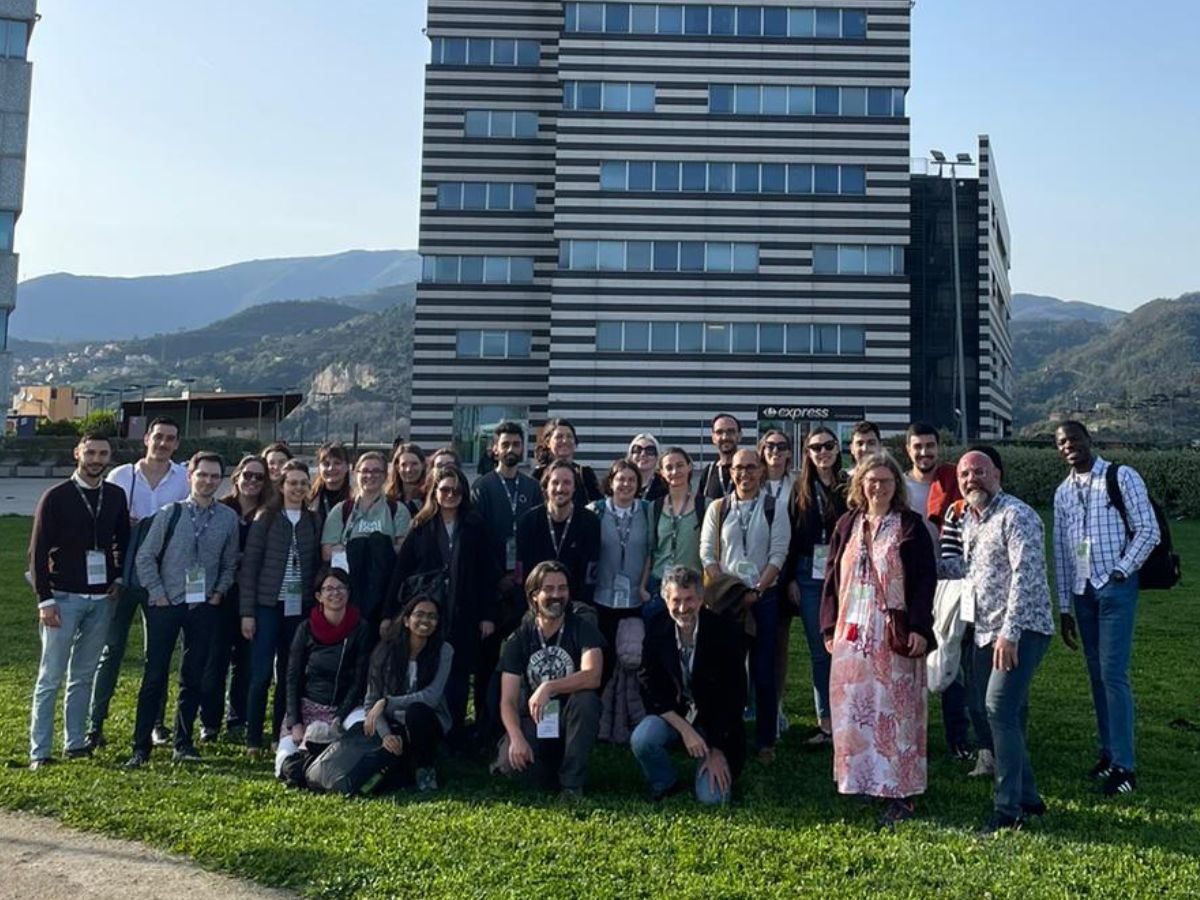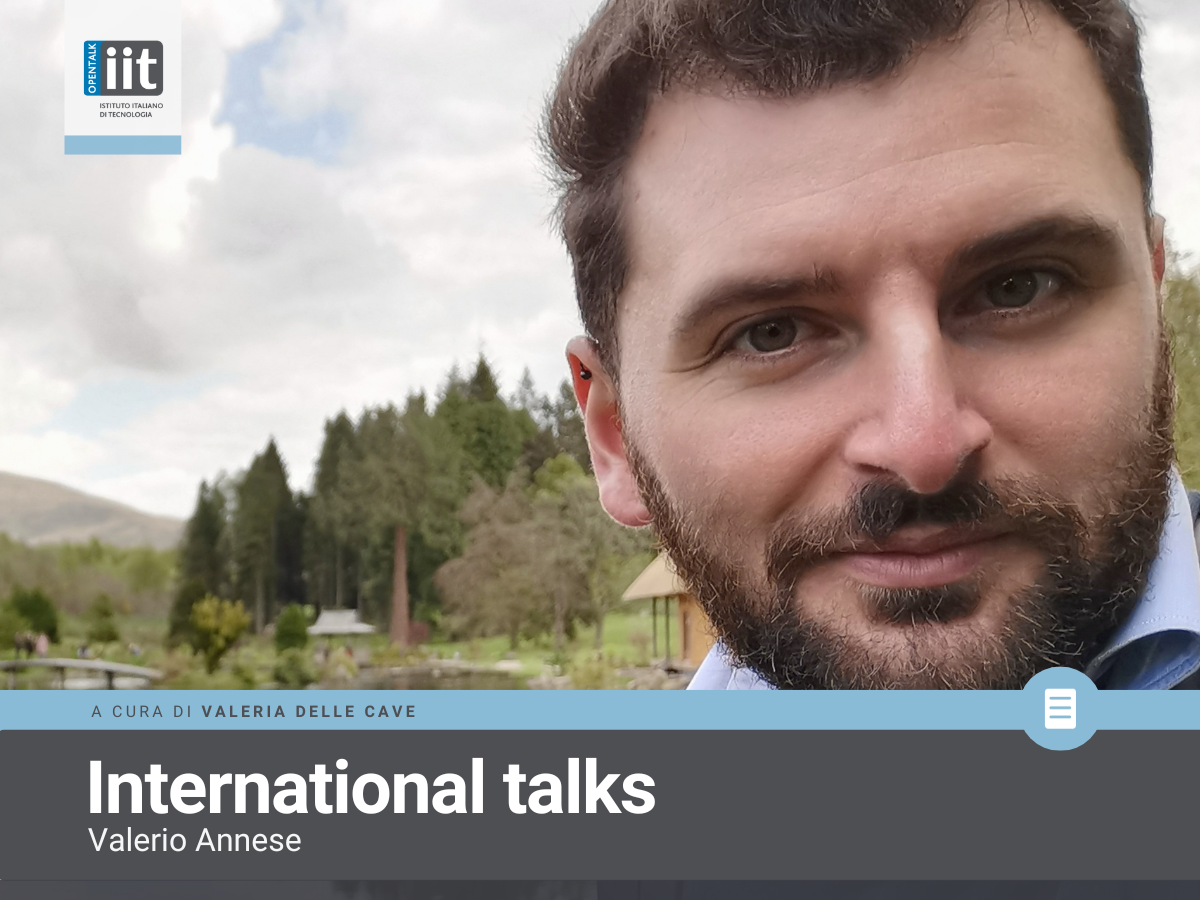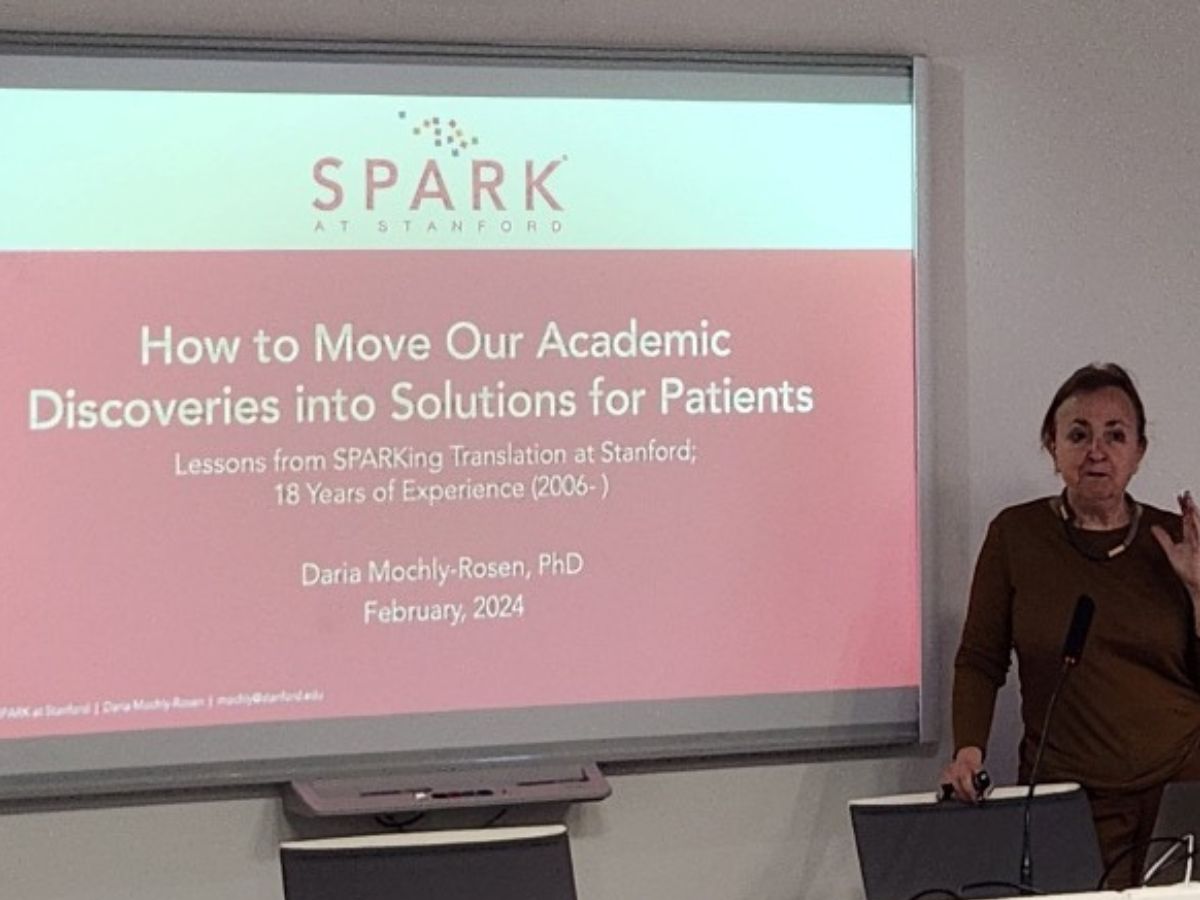Interview with Monica Gori, Coordinator of the IIT Centre for “Unit for Visually Impaired people”
Name: MonicaSurname: GoriPlace of birth: Arezzo (Italia)Position: PI, Coordinator of the IIT Unit for Visually Impaired PeopleWhat does your research team do?My team U-VIP make incredible work in the middle between science and technology to study perceptual development and create new multisensory technology for rehabilitation, education and game. In the last 20 years, I studied human sensory neuroscience, particularly multisensory abilities, in children and adults with and without impairment. U-VIP opened in 2015. The U-VIP team uses state-of-art neuroscience techniques, including psychophysics, computational modelling, electrophysiological recordings and applying scientific results to conceive new multisensory technological solutions. The team’s research addresses most major themes of sensory interaction, multisensory perception, learning impairments, navigation, child development, cortical reorganization, cortical plasticity, spatial and temporal perception. More recently, the team research has expanded to include multisensory perception in infancy, the development of multisensory rehabilitative and supportive technology for early intervention, , psychopathology disorders and sleep. To reach this goal, we are about half psychologists and half engineers. On our website, https://www.iit.it/web/unit-for-visually-impaired-people might be found more details about the fantastic researchers that work with me.
When you were younger, was this the job you had in mind?Not really. I believed that my goal was to help others when I was young, but I didn’t know how to do that. Probably, for this reason, I studied psychology. At the university, I became interested in understanding how the brain works. During the master thesis, I started researching human sensory neuroscience with Professor David Burr al CNR di Pisa. However, doing only basic science was not enough for me and when I had to decide about the Ph.D. I realized that I would like to apply this basic knowledge and did a Ph.D. in robotics engineering.That time you would have wanted to drop everything and do something else:It didn’t happen yet but in case, I think I’ll try to become an artist. I have always painted, my parents are artists, and certainly, art is something that I will always carry with me. My paintings are all multisensory (examples below) with the tactile surface so that also blind people can explore them. In some way also my art breaks down the barriers.

“Publish or perish”. How does the pressure to publish influence your days and your professional choices?Certainly, the pressure is there. However, working with people with disabilities leads to evaluating not only the scientific impact but also the application and social impact. I try to combine scientific and application results in the group, and I try to communicate to my research team that both aspects are important. During the first year of Ph.D., the students investigate the basic neuroscientific aspects of multisensory perception. In the following years, they start to move toward more technological applications. All the applications we develop have a social outcome with the final goal of improving the quality of life of people with impairment and in particular children with visual disability.When did you realise you were going in the right direction?When I received the first email from a parent of a child with a disability thanking me for what we do. When I worked only on perception without applying it, I had the impression of not “giving anything back” to people. Since I make applications that can help, I feel like I am making a change. Our scientific results prove that our ideas have value, which makes me understand that we are on the right path and we are already making a change. The European projects I coordinated (ABBI, weDRAW) made me appreciate that Europe believes in us. The prestigious ERC MySpace project, one of the most important for the researcher in my career stage, I won last year confirmed this.What is your next goal?In the next few years, I will increase the technological validation by providing evaluation also at the cortical and not only at the behavioral level. I will also go down with age involving younger and younger participants and to provide early intervention systems. This work is possible thanks to the extensive and valuable network we have established with hospitals (e.g. Mondino Hospital in Pavia, Chiossone and Gaslini in Genoa, Nostra Famiglia in Lecco and Stella Maris in Pisa), associations (e.g. UIC and IRIFOR) and schools in the Genoa area that work with us.What is the toughest aspect of your job?A challenging aspect is coordinating the large amount of work both at the organizational and data collection levels. We often travel to hospitals in Italy. At the same time, we make technological development and scientific research. My work also requires managing work trips and administrative aspects. It takes excellent coordination to avoid frustration in lab people and provide optimal results. In doing that, we don’t have to forget the “human side”. For example I often find myself reassuring the researchers of my group in the effort they make. Completing scientific work requires a lot of rigor and motivation. When you start a new experiment there is enthusiasm and curiosity to understand if the idea has a positive side. when you are at the end of a search, after a year or two of carrying it out, you want to see it closed. It is precisely there that the researcher must hold on and not be demotivated. I would say that being close to the group the last mile is the most delicate thing.Senior researchers necessarily have to deal with many bureaucratic aspects. This aspect does not fit well with the research activity. How is that for you?In the beginning, it was not easy, but the coordination of the big European projects like ABBI (www.abbiproject.eu), weDRAW (www.wedraw.eu) and more recently, the ERC MySpace, (www.myspaceproject.eu) allowed of training myself. I have to say that IIT supports this workload and our Scientific Director is working to enable us to do more research than bureaucratic work. In my everyday work with young researchers in my team, I try to involve them in the difficulties we encounter. This experience, I hope, will help them to understand how to manage time and work, a crucial aspect to know for when they will lead their research groups themselves. Who would have to invest more in research compared to what it is done today?I was awarded 7 million euros in European funding for projects presented by myself or with other European institutions. Despite having sent many projects on visual impairment to Italy, I have not received funding. I have the impression that Italy is not investing enough in visual impairment. I would also like to see an Italian effort in investing in the essential research and technology for children and adults with visual disabilities.Do people talk about science outside the labs and the academic world? It seems to me that the topic of disability and childhood is well discussed. However, I would like to see more practical sessions by creating moments in which children with different disabilities can play together. We recently did it in the 4 weeks for inclusion event (https://www.youtube.com/watch?v=S2AR3XlrsGI ). We developed two multisensory games that permitted children and adults with visual and hearing impairments and children without disabilities to play together online simultaneously.Who gave you the most important advice during your journey?For sure, I would like to quote David Burr, who I still remember when he said to me: if you want to continue being a scientist and have fun, you must be able to publish at least one work a year on your research and not stop at just the coordination part. I often think about it. The more you go on, the more difficult it is to do it, but I, for the moment, am succeeding despite the effort. Another important piece of advice is Giulio Sandini’s suggestion to focus attention and not wander. Better to do something well done than much less well. I am focusing on the child’s visual impairment, and this is the path I will continue to follow. I want to mention Emanuela Mazzoni, who is following the group doing team-building with us. She taught me that I have to help to get help. Finally, my husband Alberto Parmiggiani guided me to understand and reminded me from time to time that the goal is not to achieve success but to produce a change.What would you say to the younger you finishing his Ph.D.?What would you say to the younger you finishing his Ph.D.? I would give a message of trust. I would say that the results of so many efforts will be seen. At the same time, I would like to say that it is essential to see the 10 years goal to reach and to prepare a career plan to clarify the future activity. I’m doing this with the researchers in my team. Now more than before, it is essential to look at “now” thinking about the future.Is working in different countries essential for a researcher?Yes, I believe it is. If it is not possible to travel, it is essential to cultivate international collaborations. Science is international and we have to network with the other researchers that work in the same fields. For example, we have many collaborations due to the European projects in which we have participated. These international links allow the creation of an international consortium for international projects, to work together and join the forces to do new experimental protocols and allow and exchange of researchers e.g. for Ph.D. period abroad.You can improve one aspect of research in general. Which one would you choose?I would like to give young people more opportunities to carry out their ideas with funds and projects dedicated to them. I would, in particular, like to see more support for women and moms with more dedicated research programs and awards to help them reach prestigious positions.





